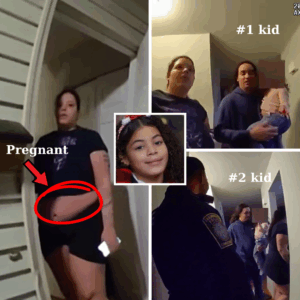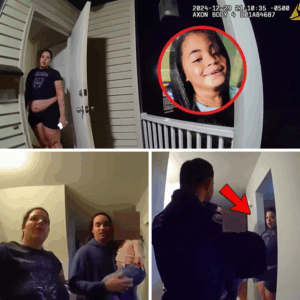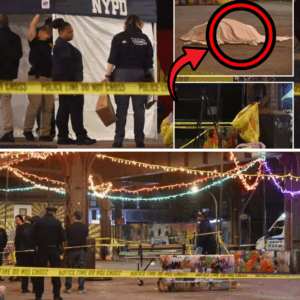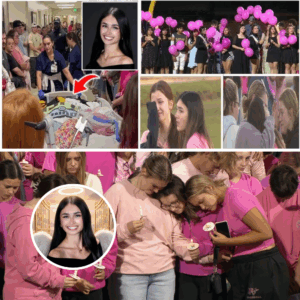In the relentless rhythm of reality television, where talent hunts evolve like pop charts—climbing highs, dipping lows, and occasionally reinventing the genre—few juggernauts have endured with the tenacity of American Idol. Since its seismic debut on Fox in 2002, the show has unearthed diamonds from the rough: Kelly Clarkson belting anthems that defined a decade, Carrie Underwood trading Oklahoma farms for global tours, Adam Lambert redefining rock ‘n’ roll glamour, and more recently, season 23’s Jamal Roberts, whose soulful grit clinched the crown in May 2025 amid a finale frenzy that drew 12.5 million viewers. Revived on ABC in 2018 after a two-year hiatus, Idol has not just survived streaming wars and format fatigue; it’s thrived, averaging 7.2 million cross-platform viewers per episode in its eighth ABC season, outpacing contemporaries like The Voice in key demos. But as the calendar flips to 2026, whispers from Music Row and Hollywood Boulevard herald a seismic shift: American Idol returns not as a nostalgic echo but as a bold reinvention, dubbed “Idol University” with a Nashville-infused Hollywood Week that promises the “biggest cut in show history.” Premiering earlier than ever on January 26—slipping back into the January slot last occupied in 2016—this ninth ABC season (24th overall) arrives armed with format overhauls teased by showrunner Megan Wolflick as “big changes” to sharpen the edge. Fans, scrolling through teaser clips on Instagram and TikTok, aren’t just buzzing; they’re prophesying a “formidable rival” resurgence, one that could dethrone The Voice‘s fall dominance and reclaim Idol‘s throne as television’s ultimate dream factory. In an era of TikTok sensations and AI auditions, these twists feel like a clarion call: the hunt for America’s next icon is getting smarter, fiercer, and unapologetically Southern.
The announcement landed like a golden ticket on October 28, 2025, via ABC’s midseason slate reveal—a press release that sandwiched Idol‘s bombshell between The Rookie‘s gritty returns and Scrubs‘ revival nostalgia. “Hollywood Week: Music City Takeover” isn’t mere relocation; it’s a radical reimagining of the show’s most grueling rite of passage. For 23 seasons, Hollywood Week has been the glamour gauntlet: sun-kissed beaches, starstruck hopefuls bunking in Beverly Hills hotels, group performances under palm trees that weed out the weak with viral meltdowns and triumphant tears. Contestants, fresh from auditions, faced a marathon of solo rounds, duets, and showcase groups, often slashed from 100-plus to a lean Top 24 amid judges’ mercy pleas and producer interventions. But in 2026, the glamour gives way to grit: Nashville’s neon-lit honky-tonks and storied studios become the battlefield, transforming the week into a single, do-or-die showdown. “One round only,” the release trumpeted, “as the hopefuls from all musical genres take the stage for a make-or-break performance.” No more multi-day mercy; this is a high-wire act where dozens audition in the shadow of the Ryman Auditorium, belting originals or covers amid the ghosts of Johnny Cash and Dolly Parton. The payoff? The “biggest Hollywood Week cut in Idol history,” potentially halving the field in hours, forcing contestants to channel Music City’s raw resilience from the jump.
Why Nashville? It’s no caprice; it’s calculus. The city—often called “Nowville” for its explosive growth from 600,000 residents in 2010 to nearly a million today—pulses with a creative ecosystem that Idol craves. Home to BMI and ASCAP’s publishing hubs, where songwriters craft hits in shotgun shacks; the Bluebird Cafe, where Taylor Swift penned her breakout; and a country scene that’s ballooned to encompass hip-hop crossovers (hello, Post Malone) and indie folk revivals. Relocating Hollywood Week here injects authenticity: contestants won’t just perform; they’ll immerse, perhaps workshopping with session pros or busking on Broadway’s bar-lined blocks. “It’s about rooting the show in real music-making soil,” Wolflick hinted in a September TV Insider chat, emphasizing “big format changes” to combat critiques of Idol‘s “popularity contest” drift. Auditions, already underway in a compressed timeline (filming kicks off November 2025 at Gaylord Opryland Resort), will funnel diverse talents—gospel belters from Atlanta, mariachi-infused pop from L.A., bluegrass fiddlers from the Appalachians—into this crucible. The early premiere, slipping into January’s post-holiday void, capitalizes on New Year’s resolution viewers hungry for inspiration, potentially boosting ratings 20% from season 23’s March start. “We’re event television,” Wolflick added, eyeing Idol‘s role as ABC’s spring anchor. With episodes expanding to Sundays at 8 p.m. ET/PT—doubling down on family viewing—the stage is set for a season that feels urgent, unfiltered, and utterly alive.
At the helm? The trifecta that’s become Idol‘s secret sauce: Carrie Underwood, Luke Bryan, and Lionel Richie, all locked in for year two of their tenure. Announced August 25 via a cheeky Instagram Reel—”back to school” at Idol University, complete with pleated skirts and lunchbox props—the trio embodies the theme’s playful pivot. Underwood, 42, the season 4 champ turned 16-time Grammy titan (Cry Pretty still slays), brings insider edge: her Oklahoma twang and powerhouse pipes make her the dreamer’s advocate, spotting raw potential like she once embodied. “I’ve been where they are—scared, soaring, second-guessing,” she shared in the vid, her eyes twinkling with hard-won wisdom. Bryan, 49, the Georgia good-ol’-boy with seven No. 1s (Kill the Lights a playlist staple), infuses Southern soul: his farm-boy anecdotes and knee-slapping humor ground the glamour, while his judging acumen—mentoring Abi Carter to her 2024 win—earns nods from Nashville insiders. Richie, 76, the Motown heir with All Night Long‘s eternal groove, rounds out the panel with elder-statesman gravitas: his critiques, laced with “Tutu” tenderness, cut deep yet uplift, drawing from a career spanning Commodores funk to solo silk. Host Ryan Seacrest, 51, seals the deal—his 24th season a testament to charisma that glues chaos into gold, from Live with Kelly and Ryan mornings to this nightly whirlwind. “We’re family now,” Seacrest quipped at a September presser, his energy unflagging post-deal ink.
But the real alchemy? “Idol University,” the thematic wrapper that’s got fans theorizing TikTok manifestos. Teased in that August clip—a mock syllabus of “Vocal Bootcamp 101” and “Stage Presence Seminar”—it reframes the competition as an accelerated conservatory, where auditions are “entrance exams,” Hollywood Week the “midterms,” and the live shows the “finals.” Contestants might earn “credits” for genre challenges—country crash courses in Nashville, pop masterclasses with guest profs like Ariana Grande—or “electives” like songwriting labs with alums (imagine Clarkson guest-lecturing heartbreak hooks). Wolflick’s “big format changes” tease more: perhaps viewer-voted “study groups” for wildcard saves, or mentor rotations pulling from Idol‘s Rolodex (Archuleta on vulnerability, Fantasia on soul). “It’s about growth, not just glory,” she told Collider in May, addressing calls to ditch repetitive themed nights like Disney or Rock ‘n’ Roll Hall of Fame—swapping for “major” explorations like R&B Renaissance or Global Fusion. The Nashville nexus amplifies this: imagine Top 24 hopefuls shadowing producers at Blackbird Studios, turning theoretical “classes” into hands-on hustle. Early buzz? Audition clips leaked on X show a 17-year-old Tejano singer reworking Selena in a honky-tonk, earning a standing O from Bryan. “This ain’t school; it’s sorcery,” one fan tweeted, her post netting 50K likes.
For superfans, these evolutions aren’t tweaks; they’re triumphs, positioning Idol as a “formidable rival” to The Voice‘s juggernaut. NBC’s fall staple, with Snoop Dogg’s swagger and self-pairing Battles, draws 8.5 million weekly—but its winter hiatus leaves a void Idol now fills with January firepower. Season 23’s Jamal Roberts win—his “Ain’t No Sunshine” finale a viral tearjerker—proved Idol‘s emotional pull, but dips in 18-34 demos (down 10% from 2022) sparked “stale” whispers. Nashville’s infusion counters that: country crossover kings like Morgan Wallen (1.5 billion Spotify streams) validate the pivot, while diverse acts—think season 22’s Wé Ani blending opera and trap—keep it inclusive. Social metrics explode: #IdolUniversity trended with 2.3 million impressions post-announce, fan edits syncing Underwood’s “Before He Cheats” to syllabus spoofs. “Voice is fun, but Idol’s family,” a Reddit r/AmericanIdol mod posted, her thread dissecting how Music City’s meritocracy—raw cuts over steals—mirrors life’s auditions. Critics concur: Variety’s October 29 op-ed hailed it as “a masterclass in reinvention,” predicting 9 million premiere viewers. Even Voice alums nod: Niall Horan, in a SiriusXM spot, quipped, “Nashville? Bold—may the best crooner win.”
Yet, beneath the hype hums the human heartbeat: the dreamers. Season 24’s pool, scouted from virtual submissions and citywide cattle calls (Atlanta’s October 2025 open mic drew 5,000), teems with tales. A 25-year-old barista from Boise, her originals scribbled on coffee sleeves; a 16-year-old queer kid from Miami fusing K-pop and conjunto; a retired Marine from Tulsa chasing catharsis in country blues. “We’re not hunting stars; we’re igniting them,” Wolflick emphasized, her vision a bulwark against TikTok’s 15-second fame. The cuts will sting—Hollywood’s historic cull a pressure cooker—but survivors emerge forged: think season 20’s Noah Thompson, a construction worker turned chart-topper. With Peacock/Hulu streams up 30% year-over-year, Idol eyes Gen Z via app-voted “dean’s list” bonuses, blending broadcast ritual with digital democracy.
As January 26 dawns, American Idol doesn’t just return; it reinvents, swapping Tinseltown sheen for Music City muscle in a semester of stardom. Fans, from forum faithful to casual scrollers, sense the shift: a rival reborn, thrilling in its terror. In Idol University, lessons aren’t learned—they’re lived, one make-or-break note at a time. Tune in Sundays: class is in session, and the valedictorian’s mic is waiting.





